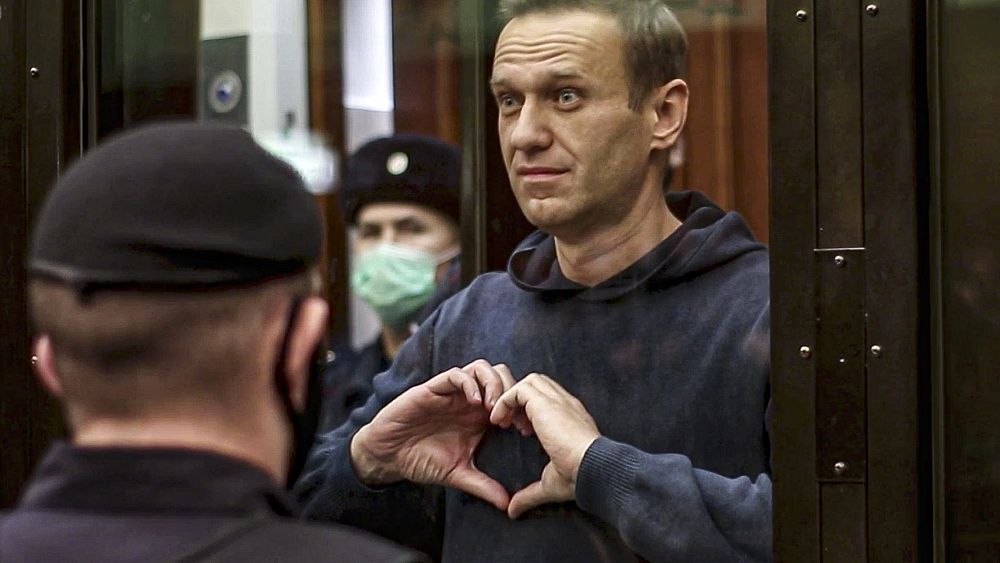
Imprisoned Russian opposition leader Alexei Navalny has been awarded with the Sakharov Prize for Freedom of Thought, the European Union’s highest tribute to human rights defenders.
The award was selected by the leaders of the political parties represented in the European Parliament during a plenary session in Strasbourg on Wednesday afternoon.
Navalny, the most prominent foe of Russian President Vladimir Putin, was nominated alongside Afghan women, whose plight has taken centre stage after the Taliban takeover, and Jeanine Áñez, a Bolivian politician who became interim president in 2019 after alleged electoral fraud by Evo Morales. Áñez was later arrested for allegedly plotting coup d’état against Morales.
The Sakharov Prize was set up in 1988 to honour individuals and organisations defending human rights and fundamental freedoms. The annual award is named in honour of Soviet physicist and political dissident Andrei Sakharov, an advocate of civil liberties in the former Soviet Union. The first recipients were Nelson Mandela and Anatoli Marchenko.
The €50,000 award is supposed to be presented during a European Parliament session in Strasbourg on December 15, although this seems unlikely to happen in the case of Navalny since he’s currently serving a two-and-a-half-year jail sentence for fraud in Russia.
He says the charges were politically motivated to halt his challenge to the Kremlin. Russian authorities have opened a new criminal case against Navalny that could see him stay in jail for another decade.
“Today’s prize recognises his immense bravery and we reiterate our call for his immediate release,” said David Sassoli, President of the European Parliament, in a tweet. Sassoli is currently absent from the hemicycle as he battles a case of pneumonia.
The main political parties also celebrated the laureate’s work and recognition, although some wished the Afghan women had taken the top prize.
“His unbroken commitment for a democratic Russia is representative of the many activists who are fighting for liberal rights,” wrote David McAllister, a German MEP of the centre-right EPP group and chairman of the parliament’s committee on foreign affairs.
“His bravery for freedom of thought and expression show how they are the precondition for democratic politics, human dignity & peace,” said Belgian MEP Guy Verhofstadt, from Renew Europe.
“As much as we would have liked this prize to go to Afghan women fighting for freedom and equality, we remain fully committed to shed light on their dramatic fate under the Taliban rule, and we will continue to stand up for their rights,” said the Socialists & Democrats (S&D) group, who also congratulated the Russian activist.
Navalny’s international profile rose in recent years as Putin’s power grab intensified. In August 2020, the activist was poisoned with a Novichok nerve agent and was hospitalised in serious condition, with many of his supporters fearing for his life. Navalny was evacuated to a hospital in Berlin and eventually survived. He later accused the Kremlin of being behind the chemical attack.
The incident led to international outrage. The European Union, as well as the United Kingdom, imposed a raft on sanctions against several Russian high-ranking officials believed to be involved in the poisoning of the Putin critic.
The EU’s award to a member of the Russian opposition movement comes days after Russian journalist Dmitry Muratov won the Nobel Peace Prize, a recognition that some of the jailed dissident’s supporters described as “undeserving”.
Muratov himself said he would have given the prestigious honour to Navalny.